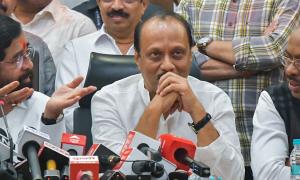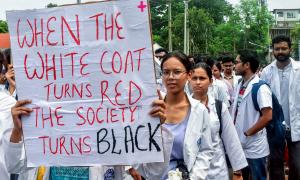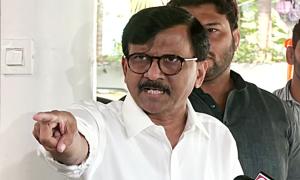The United States and the European Union were forced to be on the backfoot on Wednesday, as ministers of the G-21 developing countries including India, Brazil and China issued a draft ministerial communique on agriculture, shortly before the start of the five-day World Trade Organisation Ministerial in Cancun, Mexico.
| |||||||||||
The hard-hitting communique by the G-21 countries, including the latest entrant Egypt --much to the discomfort of the EU Trade Commissioner Pascal Lamy and US Trade Representative Robert Zoellick -- said the export subsidies must be eliminated.
The economic, political, technical and ethical reasons add up to make their continuation an aberration, it said, adding concurrently, tighter rules shall be established on export credits and food aid.
These forms of circumvention of export subsidies commitments cannot continue to distort export competition, the communiqué, issued at a jam-packed joint news conference addressed by the trade ministers of India, Brazil, Argentina, China, Egypt and South Africa, said.
The conference by G-21 trade ministers, which said the grouping represents a cross-section of the WTO membership comprising a substantial share of the world agricultural population, production and trade, was preceded by news conferences by Lamy and Zoellick.
Lamy appeared to be on the defensive for a change when he said the EU has come with an "open mind", and was willing to adopt a "flexible" approach on contentious issues including agriculture in a bid to move forward on the Doha round of negotiations.
Zoellick said, "We have sympathy with G-20 that is a combination of sometimes more market opening and sometimes less market opening views. On our part, we welcome ambition. At the same time, we are trying to bring along all our partners together to accomplish as much as we can."
"Now all those different proposals, including the ones that we put together with the EU, are now part of a chairman's text. No one's agreed to this text. Everybody has a right to try to change it and adjust it. But if we are going to go forward, we need to try to see how we can take that framework and make it something that we all agree on together," he added.
"In the Uruguay round there was an agreement to cut export subsidies by volume terms of 21 per cent and in budget terms by 36 per cent. The battle here is how far we can get to elimination," he said.








More from rediff